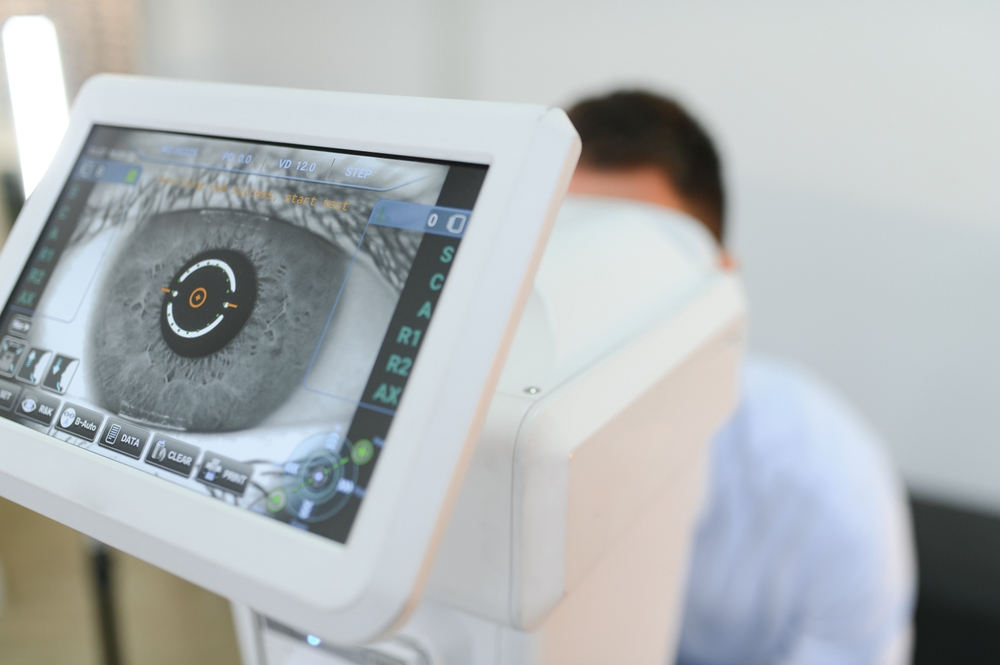
Comprehensive eye exams are full check-ups for your eyes, assessing everything from visual acuity to overall eye health. They allow optometrists to detect any potential problems early, often before symptoms even appear. By getting regular, comprehensive eye exams, you can help ensure your eyes stay healthy and your vision stays sharp. So, what exactly does a comprehensive eye exam entail?
The Importance of Comprehensive Eye Exams
Comprehensive eye exams are important for all ages. For children, these exams can ensure normal vision development and academic achievement. For adults, they can help detect age-related eye diseases early, allowing for more successful treatment. And for seniors, comprehensive eye exams can help maintain independence and quality of life.
Additionally, comprehensive eye exams can reveal more than just eye-related health issues. Conditions like diabetes and high blood pressure can be detected during these exams, sometimes before other symptoms become apparent. Early detection can be key to managing these conditions and preventing further complications.
Preparing for Your Comprehensive Eye Exam
Before your comprehensive eye exam, there are a few steps you can take to ensure the process goes smoothly. First, make a list of any symptoms or issues you're experiencing. Even if they seem minor, they can be important in diagnosing potential problems.
Next, make sure to bring your current glasses or contact lenses, if you have them. Your optometrist will want to know what your current prescription is and how well it's working for you.
Also bring a list of any medications you're currently taking, including over-the-counter drugs and supplements. Some medications can affect your vision or interact with medications your optometrist might prescribe.
Finally, if you have questions about your eyes or vision, write them down and bring them with you. Your comprehensive eye exam is a great opportunity to get expert answers.
What Happens During a Comprehensive Eye Exam Process?
The comprehensive eye exam process is thorough and comprehensive. It typically involves a number of tests and procedures to evaluate every aspect of your eye health and vision.
First, your optometrist will likely review your medical history. They'll want to know about any eye problems you've had in the past, as well as any current symptoms you might be experiencing. They'll also ask about your overall health and any medications you're taking.
Next, your optometrist will conduct a series of tests to assess your vision. This may include reading a vision chart as well as tests to determine your prescription for glasses or contact lenses. Your optometrist may also check for common eye diseases, like glaucoma and macular degeneration.
Lastly, your optometrist will examine your eye health. They'll look at the exterior of your eyes, as well as the interior, using a special light. This can reveal any abnormalities or signs of disease.
Tests in a Comprehensive Eye Exam
During your comprehensive eye exam, your optometrist will conduct a variety of tests to assess your vision and eye health. These tests might include:
· Visual acuity tests: These tests measure how well you can see. You'll be asked to read a vision chart with letters of various sizes. This can help determine if you need glasses or contact lenses.
· Refraction assessment: This test determines your exact prescription. Your optometrist will have you look through a device with different lenses, asking which ones make your vision clearer.
· Slit-lamp exam: This test allows your optometrist to examine the structures of your eye under high magnification. It can reveal conditions like cataracts, macular degeneration, and damage from diabetes.
· Glaucoma test: This test measures the pressure inside your eyes. High blood pressure can be a sign of glaucoma, a serious eye disease that can cause blindness if left untreated.
· Pupil dilation: Your optometrist may put drops in your eyes to dilate your pupils. This allows them to see the back of your eyes and check for signs of disease.
Common Eye Conditions Detected Through Comprehensive Eye Exams
Comprehensive eye exams can detect a variety of eye conditions, often before they cause noticeable symptoms.
Conditions like glaucoma and macular degeneration often have no early warning signs. But they can be detected in a comprehensive eye exam, allowing for early intervention and treatment.
Other conditions that can be detected include cataracts, diabetic retinopathy, and dry eye syndrome. Your optometrist can also identify problems with your eye alignment or eye movement, which can cause issues like double vision or strabismus (crossed eyes).
These exams can also reveal signs of health issues not directly related to your eyes. For example, hypertension and diabetes can both affect your eyes, and your optometrist might be the first to detect these conditions.
Prioritizing Your Eye Health
Comprehensive eye exams are an integral part of maintaining both your eye health and your overall health. They allow for the early detection of a wide range of conditions, enabling more effective treatment and potentially saving your vision.
Prioritize your eye health today and schedule a comprehensive eye exam with Advanced Family Eye Care in our Broken Arrow or Wagoner, Oklahoma, office. We provide the highest quality eye care to all our patients. Call (918) 279-8830 or (918) 485-2123 to book an appointment.









